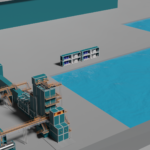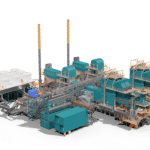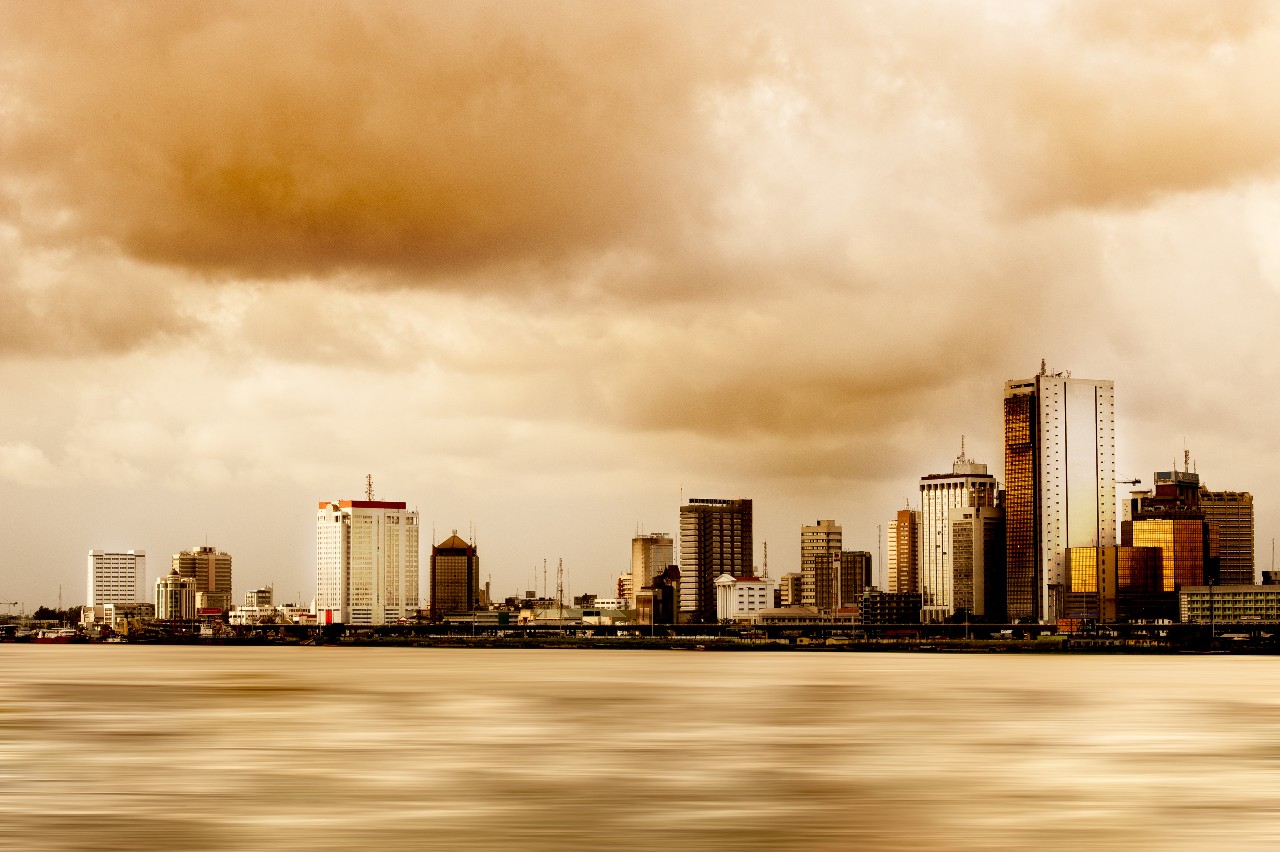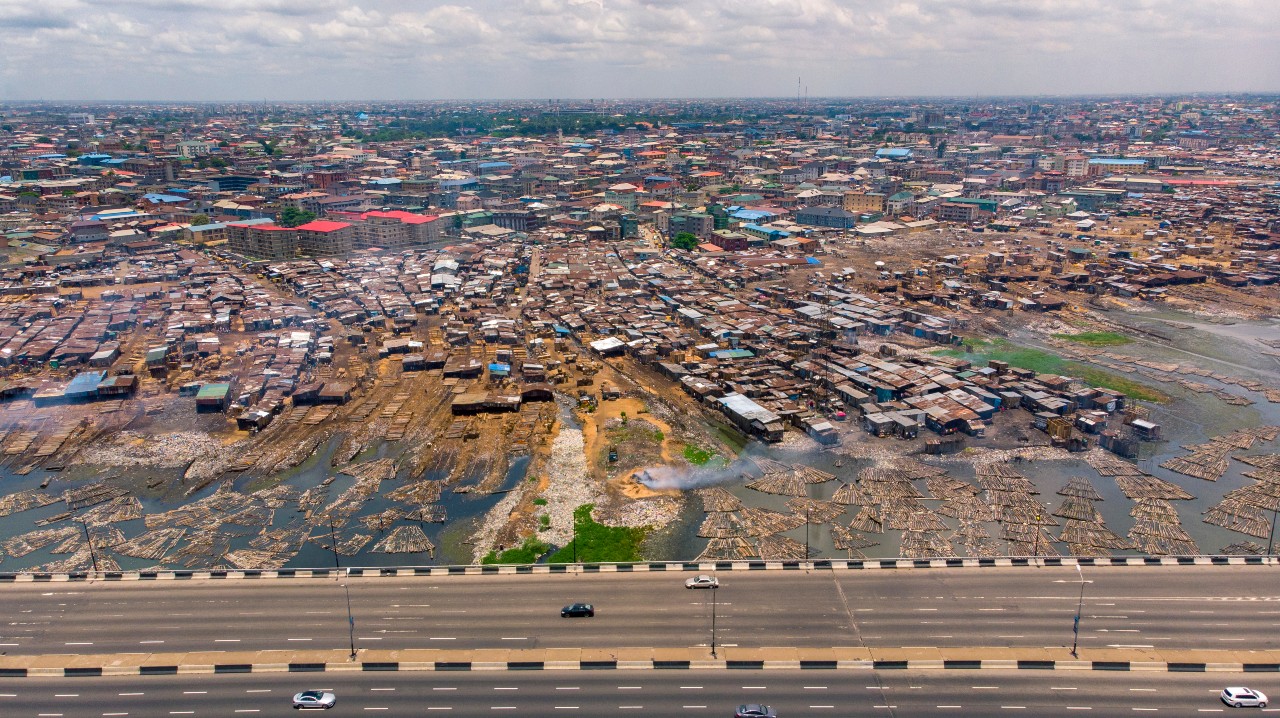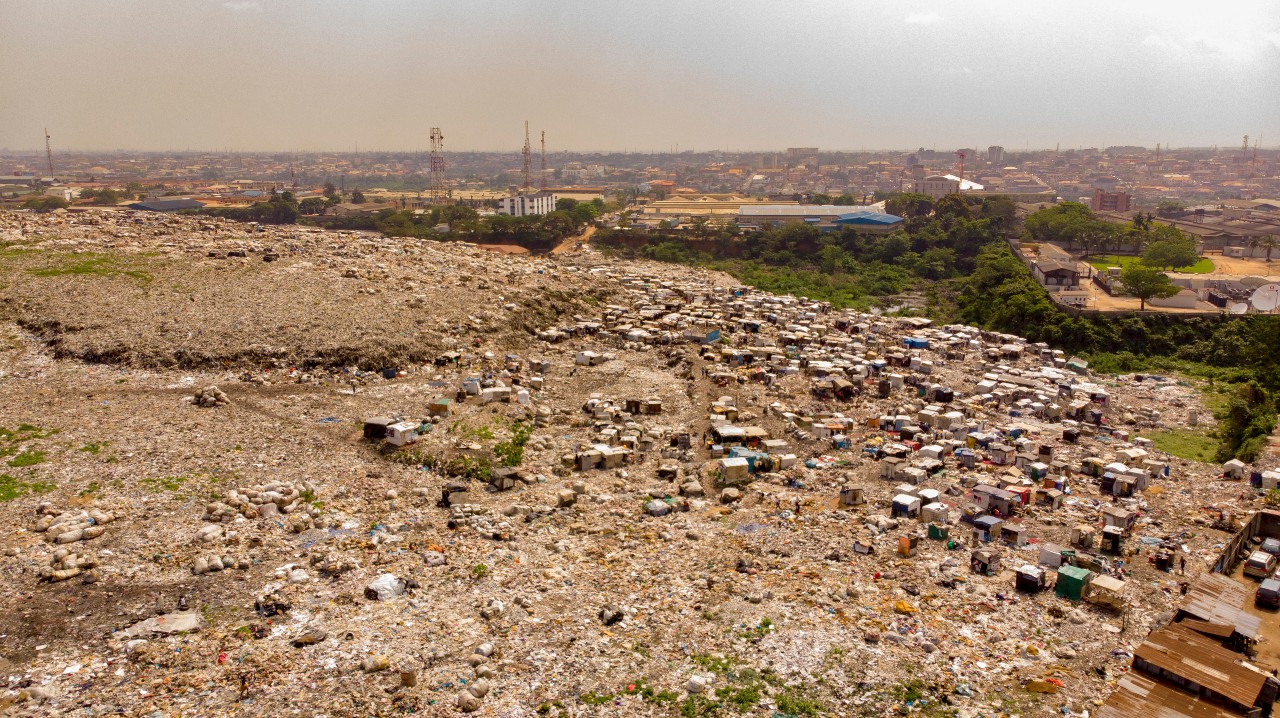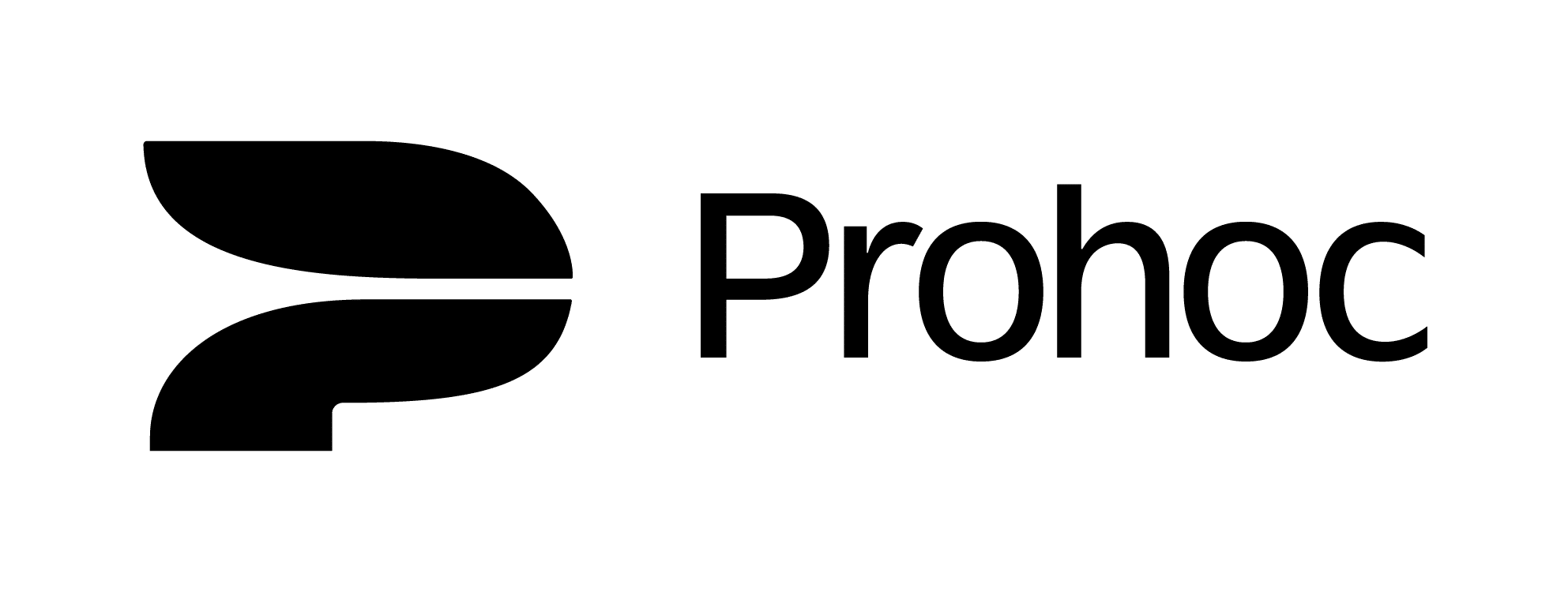Lagos is a city in the Nigerian state of Lagos. The city, with its adjoining conurbation, is the most populous in Nigeria, and the most populous on the African continent. It is also one of the fastest growing cities in the world, and one of the most populous urban agglomerations. Lagos is a major financial center in Africa; the megacity has the highest GDP, and also houses one of the largest and busiest seaports on the continent.
Lagos initially emerged as a port city that originated on a collection of islands, which stretch up to 100 km east and west of the Lagos Lagoon. Lagos, the capital of Nigeria since its amalgamation in 1914, went on to become the capital of Lagos State after its creation. However, the federal capital moved to Abuja in 1991. Even though Lagos is still widely referred to as a city, the present day Lagos, also known as “Metropolitan Lagos”, and officially as “Lagos Metropolitan Area” is an urban agglomeration making up 37% of Lagos State’s total land area, but housing about 85% of the state’s total population. The Greater Metropolitan Lagos has approximately 21 million inhabitants.
Today, Lagos as Africa’s most populated city, is managing waste generated by over 20 million residents running into 13,000 metric tons daily with infrastructure constructed in the ’70s for a population of 3 million. For years, there was a seemingly easy fix. Trucks drove the waste far outside town, depositing it at the 40-hectare Olusosun dumpsite. Now Lagos has expanded well beyond Olusosun, and the cavernous dump finds itself in the center of the city, a hospital on one side, a primary school on another, and homes hovering just over its precipice. It is directly off the main highway, and a whiff of burning trash sometimes blows across the city’s standing traffic jams.
Still, if Lagos is a symbol of the worst reactions to the world’s garbage problems, it also represents some of the best solutions. It is a city where waste has become an enormous public policy challenge, a source of grave diseases but also a valuable commodity. Across the city, local entrepreneurs and international businesses have opened sorting and recycling plants that recover plastics, metals and paper. Perhaps nowhere are the dangers and opportunities of trash so clear as in Olusosun, by far the biggest of the city’s landfills. The dump is a dystopian sight, a tower of garbage 10 stories tall. Today, more than 4,000 people work there, living in tent-like structures atop the trash.
Around the world, in the 1990s and early 2000s, recycling became an increasingly profitable business. And in Nigeria, where the average yearly salary is $2,000, thousands were drawn to the industry despite its often brutal conditions. In the past, some garbage pickers have died or lost limbs when the dump trucks’ hydraulics failed, and the vehicles’ containers crashed down on them. Other workers have fallen ill of unidentified diseases. As Olusosun has grown, so have the problems.
The state government has finally woken up to the problem and introduced the “Clean Lagos Initiative”. It aims to deliver an innovative and sustainable waste management system that is comparable to other world-class megacities. The solid waste management system has been overhauled with the creation of new landfills, transfer loading stations, and material recovery facilities. The mandate for the State is to have a cleaner megacity built to drive environmental and economic prosperity to all. It is estimated to create over 27,000 direct jobs and a further 400,000 indirect jobs, contributing to improving socio-economic status and bettering the lives of our people.
WOIMA has the perfect solution to support the Clean Lagos Initiative with waste-to-value solutions, and reduce the waste-induced challenges. We have developed a decentralized waste management and power generation solution named “WOIMA Ecosystem” that helps countries and cities to cope with the increasing waste challenges that they are facing.
WOIMA supports customers in the project development phase by providing a comprehensive information package covering all aspects of environmental impact assessment (EIA), social impact assessment (SIA), feasibility studies, project profitability and naturally the technical solution. WOIMA solutions are delivered on an EPC or EPCM bases and always adhere to the strictest technical and environmental standards and provide decades of uninterrupted power to local communities and businesses.
WOIMA Ecosystem recycles the waste into raw materials and energy in the most efficient manner reducing the waste quantity by over 95%. The small-to-medium size WOIMA Ecosystems are distributed close to where the waste is generated, thus offering significant waste logistics and power distribution savings in addition to solving the waste problem.
Read more: Woima decentralized W2E power generation – case study Nairobi Kenya
Contact WOIMA, if you see yourself as collaboration partner in saving the planet. Ask more about turning waste into wellbeing with WOIMA Circular Economy Solutions.

